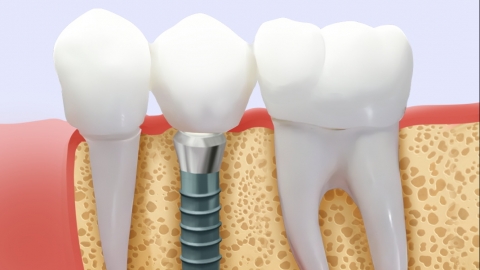Are there any side effects of dental implants?
Generally speaking, dental implantation refers to implant surgery. There are side effects associated with dental implant surgery, which mainly include gingival hyperplasia, bleeding and swelling, secondary infection, implant loosening or detachment, and nerve damage. If discomfort occurs, timely medical attention is recommended. The specific analysis is as follows:

1. Gingival Hyperplasia
During the dental implant surgery, the gums may be stimulated, potentially causing hyperplasia and the formation of surrounding lumps. Usually, there is no significant pain, and special treatment is generally not required.
2. Bleeding and Swelling
Surgical procedures may damage blood vessels, leading to bleeding, and swelling may also occur after surgery. This is a normal surgical reaction, but if the bleeding does not stop or the swelling is severe, prompt medical attention should be sought.
3. Secondary Infection
If oral hygiene is poor or post-operative care instructions are not followed, infection may occur. Infection can cause inflammation, swelling, and pain in the tissues surrounding the implant, and severe cases may affect the stability and success rate of the implant. Oral cleaning and disinfection should be performed promptly after surgery to prevent infection.
4. Implant Loosening or Detachment
Due to infection, bone resorption, or other reasons, the implant may become unstable, resulting in loosening or detachment. Usually, the implant needs to be removed, and re-implantation or other restoration methods should be considered.
5. Nerve Damage
During implant placement, instruments may irritate nerves such as the inferior alveolar nerve, mental nerve, or lingual nerve, affecting nerve function and causing numbness or abnormal sensation in the lower lip. Typically, medications such as mecobalamin tablets, vitamin B12 tablets, and oryzanol tablets should be used as directed by a physician for treatment.
Prior to undergoing dental implant surgery, it is important to fully understand the risks and potential side effects of the procedure and to make decisions under the guidance of a medical professional.







